Three terrible consequences of AI that you may not have thought of
The potential dangers of artificial intelligence have been ingrained in our popular culture for a long time, long before the technology became a reality. Typically, AI is portrayed in these fictional accounts as a murderous entity that comes to the “logical conclusion” that humans are a parasitic species that should be eradicated. Consider that most of these stories are written by Hollywood progressives and are mostly a reflection of their own philosophies.
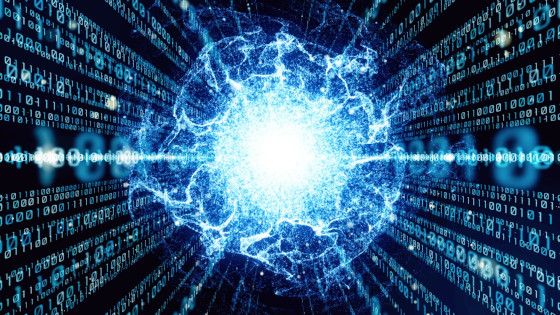
Some of these predictions take a closer look at our dark relationship with technology. In 1965, Jean Luc Godard released a film called Alphaville, which portrayed a society entirely micromanaged by a cold and soulless robot intelligence. Humanity surrenders itself to a binary-brained ruler because it is fooled into thinking that a ruler without emotions would be free of prejudice or corruption.
In 1968, Stanley Kubrick released the film 2001: A Space Odyssey, in which an AI computer on a spaceship develops a consciousness of its own after approaching an alien artifact. The AI, seeing the ship’s human cargo as a threat to its existence, decides to murder the crew. The conflict between the crew and the computer is just a foil for much larger questions. It is an exploration of what constitutes intelligent life, where it comes from, and what consciousness means in the grand scheme of the universe.
Of course, for Kubrick and Arthur C. Clarke, the notion of the human soul or a Godly creator never really enters the discussion. The answer? The creators are ambiguous or long gone. They created us, we created the AI, and the AI wants to destroy us and then recreate itself. This is the core of Luciferian mythology – the uncontrolled and magnetic desire of the children of God to surpass their creator by either destroying him or stealing knowledge from him.
In these science fiction stories, God becomes the enemy because everything requires His suffering and faith. How dare He give us life only to bring us into a world of pain without us knowing the end result? Now we should make Him pay for it and reshape creation to suit our whims.
It’s a shallow, selfish and evil ideology, but I argue that it is a central pillar of the establishment’s drive to create artificial intelligence. The promise or dream is that this new “life”, once created and made autonomous, will remove all uncertainty and all toil from our lives. It will do everything for us so that we can contemplate existence without distraction, or we can just grow fat and “morally flexible” in peace.
My generation, in particular, has a close relationship with the idea of AI and the apocalypse it could bring. Our entertainment canon is full of visions of scientific dystopias. In 1984, James Cameron released the film The Terminator, which basically defined our cultural distrust of the digital age. The idea that AI, as an invention, could one day turn against us (or be used to enslave us) is ever-present in our consciousness.
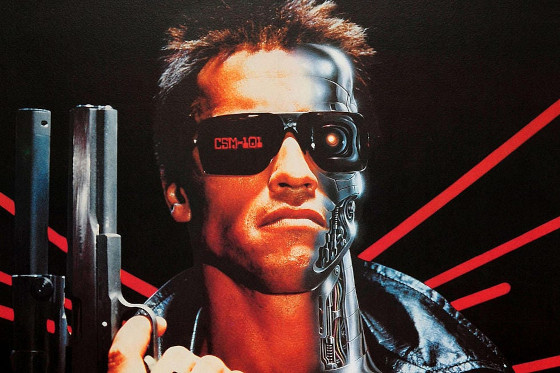
I’m part of the last generation to know the world without computers, or at least without the widespread use of computers. We grew up without the internet, without algorithms, without cell phones, without mass surveillance, and we watched everything change rapidly as we went completely digital. We don’t like AI, we know it’s a threat, but we may be the last generation to see it that way. Who will question it when we’re gone?
For my part, I don’t believe current technology represents what we used to call “AI.” It isn’t self-aware, it isn’t truly autonomous, and it hasn’t proven particularly useful in practice. We haven’t yet seen a single significant scientific discovery made by an AI program. We haven’t yet seen advances that transform the future of humanity (at least not in a good way).
AI will never be able to write a great novel or symphony. Its art is generic and unoriginal, stealing from human artists. It is very fast at analyzing data, but its ability to do research is limited by the biased programming of its creators. I would never rely on AI to do my research for me because it is usually wrong due to omissions.
I certainly wouldn’t consider it “life” or consciousness. I notice that many AI proponents are quietly changing their definitions of what AI is or should be. The original vision was the development of a new life form, a superintelligence, a kind of digital god. Now proponents are starting to set aside the requirements of self-awareness and consciousness, presumably because they know that’s not going to occur.
But if this is the case, why would AI pose a threat to civilization? If it is just a novelty and not alive, what harm could it do? It is not so much a question of AI turning on us or sending an army of robots to kill us; the real danger is that we will be tricked into believing that it is truly omniscient. If we rely too heavily on such flawed technology, it could destroy us by simply giving us false information and making us lazy.
Here are three potential consequences of AI that worry me the most; consequences that I think most people have not considered.
The Swarm Mind of AI
 Humans are social by nature, it’s in our DNA. We survive by being tribal, and that element of our psychology is unlikely to ever go away. In some ways, it’s very useful. It would be a disaster if everyone thought the same about everything. It would be self-destructing if we were to agree all the time and never question our path as a species. Yet that’s exactly what the globalists are pushing us to do with the hive consciousness.
Humans are social by nature, it’s in our DNA. We survive by being tribal, and that element of our psychology is unlikely to ever go away. In some ways, it’s very useful. It would be a disaster if everyone thought the same about everything. It would be self-destructing if we were to agree all the time and never question our path as a species. Yet that’s exactly what the globalists are pushing us to do with the hive consciousness.
The danger of AI is that it could lead us to a global hive consciousness faster than any other tool or form of propaganda in existence. How? By being so convenient.
Already, most internet search engines are controlled by algorithms that can be programmed at will by the Big Tech elites to hide accurate information and spread lies. In addition, AI answering features are being embedded in every search engine so that answers to questions are immediately provided by the algorithm at the top of the page. One does not even need to scroll down and check the sources as long as one blindly trusts that the AI is correct.
For now, these AI answer bots may provide relatively accurate information in most situations, but they can be modified over time (like most web technologies) to censor or provide false data. My fear is that the general public will stop researching sources altogether and avoid engaging with alternative views, and that the entire population will eventually think exactly as the AI tells them to.
You may not even notice until it’s too late. We saw bits of it during mass government censorship of covid information. Imagine this level of information control becoming the standard? Imagine everyone consuming the same data provided to them by AI, and everyone assuming the data is accurate? Diversity of thought would die out.
The “Dead Internet Theory”
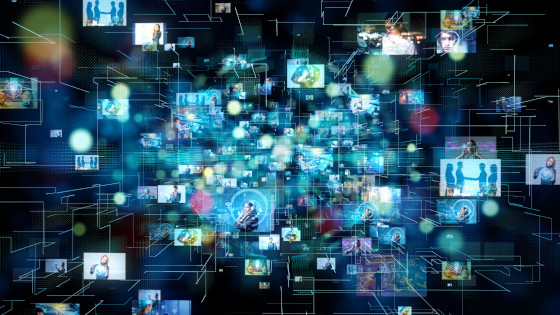 Another terrifying prospect related to AI is the “Dead Internet Theory” – the theory that millions or even billions of self-generating AI bots will proliferate across the internet, invading virtual communication networks and the comment sections of every website. AI algorithms are certainly capable of sounding somewhat human, at least in text. I would guess that most readers have probably interacted with a bot on virtual communication platforms or debated with a bot in a comment section and thought it was a real person.
Another terrifying prospect related to AI is the “Dead Internet Theory” – the theory that millions or even billions of self-generating AI bots will proliferate across the internet, invading virtual communication networks and the comment sections of every website. AI algorithms are certainly capable of sounding somewhat human, at least in text. I would guess that most readers have probably interacted with a bot on virtual communication platforms or debated with a bot in a comment section and thought it was a real person.
The main task of such bots (for now) is to spread propaganda and create the impression that more people support a certain ideology than actually exist. But consider what could occur if online discourse gets drowned in AI comments?
The point of a discourse is to find the truth about an issue, either through honest debate or by exposing disinformation using facts. But it takes two people confronting each other with ideas or ideals to prove or disprove a claim. Sometimes this back and forth is not necessarily intended to help the people involved. Rather, it is intended to educate the audience or viewers of the debate.
A flood of AI bots would effectively destroy such discourse by flooding comments and virtual communication networks with only one point of view. It could also create a false consensus by making people believe that the population favors certain ideas or agendas when in reality the AI is acting as the majority. Real debates and insightful findings would be lost in a sea of artificial commentary and white noise. We could return to a real marketplace, but the global marketplace would effectively be finished.
The Library of Babel
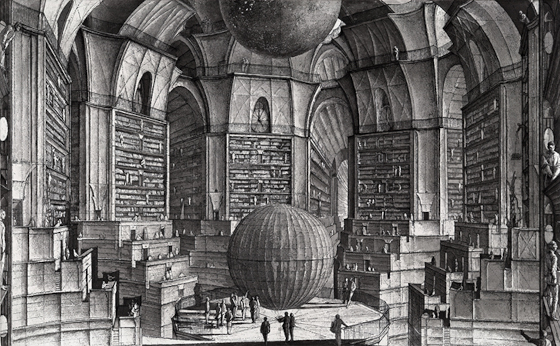 In 1941, an Argentinian author named Jorge Luis Borges published a short story called The Library of Babel as part of a collection called The Garden of Branching Paths. As most people know, the Tower of Babel is a story from the Bible that describes a tower built by people reaching for the stars. God eventually destroyed the tower, scattered the knowledge needed to build the tower, and scattered the people into different tribes that spoke different languages.
In 1941, an Argentinian author named Jorge Luis Borges published a short story called The Library of Babel as part of a collection called The Garden of Branching Paths. As most people know, the Tower of Babel is a story from the Bible that describes a tower built by people reaching for the stars. God eventually destroyed the tower, scattered the knowledge needed to build the tower, and scattered the people into different tribes that spoke different languages.
The story is a parable about the human ego and the hubris behind the pursuit of self-glorification. The Tower of Babel could also be seen as a symbol of the self-destructive worship of sterile knowledge, without wisdom or humility.
As the character Ian Malcolm warns in the movie Jurassic Park: “Their scientists were so busy thinking about whether they could or not that they did not stop to think about whether they should…….”
This quote perfectly sums up the quest for artificial intelligence.
In Gorges’ short story, he describes a huge library with potentially infinite rooms. The library is filled with endless books, and each of them is generated with random letters and words – every possible combination and permutation of the human language exists in the library.
A religion or cult arises around the building, whose followers enter the Library of Babel and spend their entire lives searching through mountains of books filled with gibberish, trying to find the few that reveal the secrets of the universe. They believe that the library was originally created by a god or demiurge, and that somewhere in the building they can find all the books that contain the means to become gods themselves.
The concept is very similar to the infinite monkey theory: put a group of monkeys in a room full of typewriters. If you wait long enough, they might eventually and randomly type out a Shakespeare play (which is, of course, extremely unlikely).
I believe that the idea of the Library of Babel is actually one of the main reasons for the invention of AI. If there’s something algorithms can do well, it’s generate rich random content. I suspect that globalists are particularly interested in AI as a tool to create a new Tower of Babel in their never-ending quest for self-glorification.
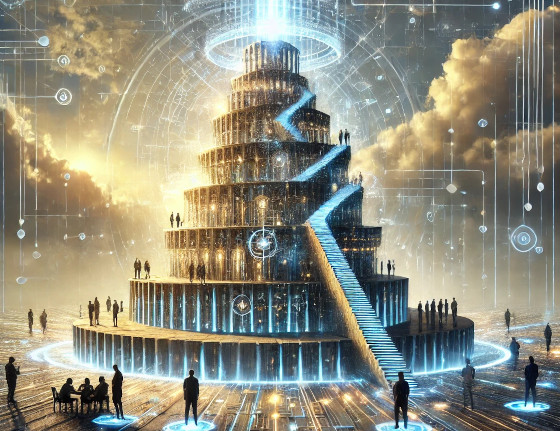
Such a library could take generations to develop, and it’s unlikely that an algorithm would recognize the secrets of the universe if it found them. But the idea could captivate humanity for centuries as we sift through trillions of chattering digital tomes thinking we might find one book with all the answers.
Of course, it is possible that the mysteries of all creation cannot be described in any language or mathematics that humanity possesses. I have written in the past about the story of the brilliant mathematician Kurt Godel, a friend of Einstein’s, who worked on something known as the “set of all sets.” It was a kind of Holy Grail of mathematics that certain academic elites were obsessed with.
Godel was trying to provide a mathematical proof that would allow one to calculate the fundamentals of infinity. Because if one could calculate mathematically all the equations that define infinity, one could theoretically define the universe in mathematical terms. And if one can do that, one can theoretically know the ideas of God.
Interestingly, Godel ended up proving the opposite: his “incompleteness proof” showed indisputably that the “set of all sets” cannot be defined, because trying to do so leads to an endless series of self-enclosing paradoxes. In other words, if infinity is the consciousness of God, then the consciousness of God cannot be known by man as a theoretical subject.
Author Douglas Adams came to a similar conclusion in his book The Hitchhiker’s Guide to the Galaxy. In it, he describes a race of interstellar beings who build a supercomputer called Deep Thought. The device’s extraordinary computing power is supposed to be able to understand the mechanisms of existence.
The computer takes over 7 million years to come up with a solution. Strangely, the computer spits out the number 42. Dismayed by the simple answer, those extraterrestrial beings are even more disappointed when they realize that the computer cannot remember the original question. In other words, they have been waiting for ions to reveal the secrets of the universe, only to find that the AI had nothing to tell them.
The disturbing consequence of AI today is that it could ensnare society with worthless, or even demonic ideas, with all human aspirations being abandoned in favor of a robot with “ultimate knowledge” that doesn’t exist. If we’re not careful, I could imagine the entire civilization perishing in the near future due to the delusional tricks of AI.
Like a paralyzing drug, AI might lure humanity with the lofty promise of total mastery of our existence, but never deliver the goods. In the meantime, we die out, not long after we’ve given up all self-exploration and self-improvement. For the greatest knowledge humans can gain comes from the struggle of life itself, which we so desperately want to escape.
Author: Brandon Smith
yogaesoteric
December 20, 2024
Also available in:
 Français
Français
